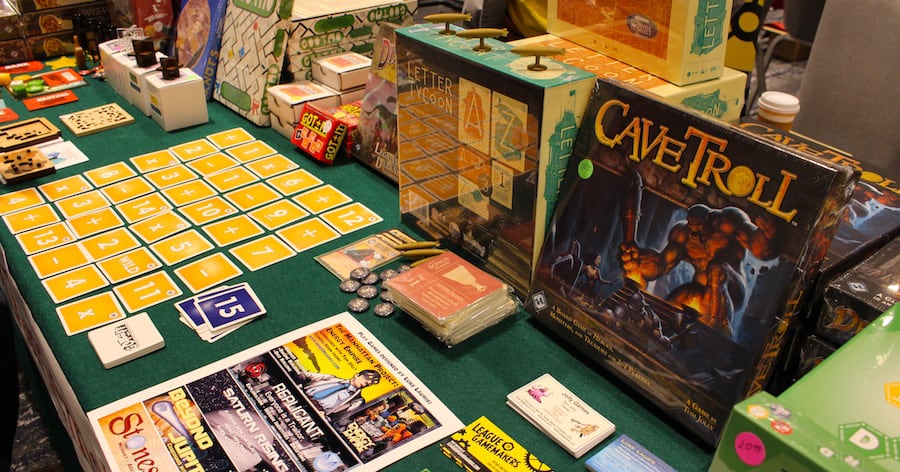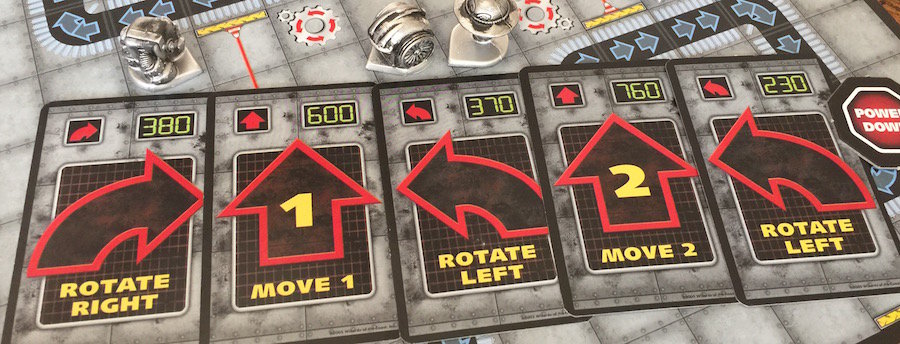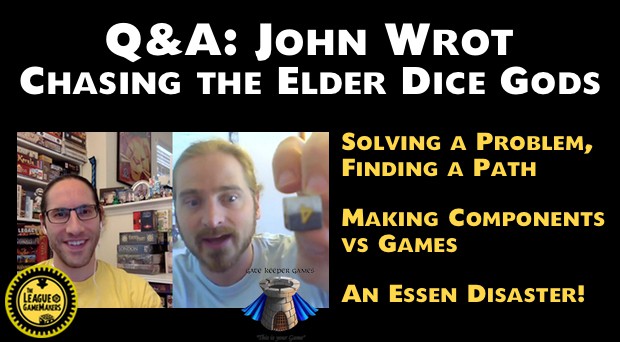
IN THE GAME INDUSTRY, COPYRIGHT, TRADEMARKS, AND PATENTS DON’T WORK. WE NEED SOMETHING ELSE.
Recently, a federal court in Texas handed down a judgment that game mechanics aren’t covered by copyright laws. The makers of the card game “Bang!” had brought the case against Ziko Games’ “Legends of the Three Kingdoms” for copying their game mechanics with a new theme. It’s old news that a copyright can’t protect game mechanics, so I wasn’t surprised. Trademark wouldn’t have helped, either.
Regarding patent law, the picture isn’t a lot rosier. The blog article I read about this, from BGD Legal (who should change their name to BGG Legal, perhaps), mentions that “Patent law can protect the rules and methods of game play, and patents directed to methods of playing card games have been issued (Magic: The Gathering, Apples to Apples). However, the courts’ evolving interpretation of patent-eligible subject matter has made obtaining patent protection on rules and methods of game play more challenging.” And it’s not uncommon for a patent to run your budget dry ($10,000-$20,000). Even a provisional patent cost me $700, once (through a law firm specializing in patents).
So let’s face it. For small game manufacturers, we’re generally screwed for game mechanics protection. If we (the game industry) need to come up with some brand new protection besides the inadequate copyright/trademark/patent routine, we need to look at other industries with similar problems and see what they’ve done. I know a lot of people out there enjoy the frontier-like feel of being able to pick and choose game mechanics and meld them into something brand new. I want to see that continue, myself. Some of the best games in the world exist because of that exchange and melding of ideas. And I know this subject is controversial, and by the time I finish here, I’m going to introduce some extremely controversial ideas. I’m not trying to push them, I’m just trying to open the conversation to see where it goes.
So how do other industries operate? Well, because everybody likes examples in groups of three, here are three for you to chew on. The music industry (conflicts about “similar music” and plagiarism). The software industry (conflicts about similar coding and processes). Machinery (taking a bunch of patented processes and combining them).
WHAT DO OTHER INDUSTRIES DO?
MUSIC
With only a dozen different notes to organize, you would think that it would be nearly impossible to write a song without accidentally copying someone, and the fact that most of the combinations of notes will suck reduces your options even more. Various rhythms and harmonies can mix this up a lot, and yet, lawsuits for plagiarism are rife in the music industry based on similar lyrics and similar note/rhythm sequences. Imagine if the game industry functioned this way and that there were only a dozen basic game mechanics to choose from. Well, why doesn’t it? The difference is that we have hundreds of “notes” to choose from. But still, how is this different from a sequence of notes creating a pleasing sound, or a sequence of player actions creating a pleasing game experience? Rather than defining the text and graphics of the game as the copyrightable material, could we define a mechanic as a “phrase” or “sequence of notes” in the game, thus giving it copyright protection? Could we establish a list of “jingles” in the game industry that copyright law would recognize?

As with music, many game mechanics have been around for hundreds of years and would be public domain. Dice rolling, putting pieces on the playing board (Go), moving pieces along a path (many games in the 1800’s), and so on. If I wanted to write a music piece, I might start by plagiarizing some classical piece from the 1800’s so as to avoid any chance of copyright infringement. Likewise with games; if each mechanic was treated as a sequence of copyrightable note sequences, then I’d use those mechanics that already were provably public domain. Even card drafting has been around much longer than one might think (Granny’s Kitchen is an old poker game that drafts cards from a common pool, so you build a poker hand as you play). If such a system of copyright were formalized, it may be difficult to establish the nuances of one mechanic over another, and whether it was derivative or not.
SOFTWARE INDUSTRY
Little chunks of code are like little machines, each one performing a certain function. Plagiarism can be fairly easy to establish in the computer industry where long sequences of code are duplicated, but as everyone in the industry knows, you can usually perform a certain task numerous ways. More recently, the functionality of the code and the task it performs have caused bitter fights in the industry. One example is Amazon’s patent on their “1-Click” action on their website. It’s hard to believe that something this simple could have a patent on it. Ebay has a patent on its online auction process, while Paypal has a patent on the way they move money around, though clearly there are other online auction houses and pay services available. So even though we have a wide variety of ways to write the rules (code), they have protection on their “game mechanics” (the end process of the code). Why doesn’t this translate to the game industry?

It does, in some respects. Some game companies have deep enough pockets to patent some game processes, like Wizards of the Coast when they patented the MtG mechanics. So, game designers could go along and patent every new mechanic they create, but this would be hugely expensive and only offer protection for 20 years (or 14 for a “design patent”). But you would rarely recover the cost of the patent, and you would have to be able to pay the lawyers to protect it in court when someone else infringed on it. If the game industry could modularize a game mechanic, such that the company using that mechanic could license it, like licensing software code, then that could function much like the aforementioned music industry analogy, without obligating the creator of the mechanic to purchase an expensive and possibly ineffective patent.
MACHINERY
In some respects, this is one of the strongest analogies for the game industry. You take a bunch of patented devices, put them together, and they perform a certain function. Generally, the function they perform, like a hay bailer, isn’t something you can patent, it’s the way the machine does it that can be patented. With games, the end goal is essentially the same for all games; one player wins using the “machine” of game mechanisms that have been put together to provide a fun game experience. So you can have patented parts and a patented overall process in a machine, but the way the pieces are painted isn’t really relevant. Back to the start of the article with the example of “Bang” and “LTK”, we would find that the individual mechanics are the same, the overall machine operates the same, but the paint is different.

As with the other two examples (software and music), we see a need to somehow modularize the game mechanics into bite-sized identifiable chunks, recognizable riffs, object-oriented modules, that can be protected under relatively inexpensive copyright law. Or something new. A registry of public domain and private game mechanic modules. Rules to modify existing modules, perhaps. Grandfathering any mechanic over 20 years old. Or modification of existing copyright law so it recognizes each mechanic as a word in a new language of game design. I’m sure there are many of you out there that don’t think this is necessary and would create an onerous load on the industry, and that we should continue as we have been. I could see that happening; it’s one of the things we’d have to avoid during implementation.
But these are just some thoughts to start the conversation.
What are your thoughts? What do you think would work?








